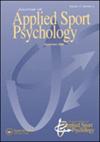Coming to voice: Intersections of identity for Olympic female African American sprinters
IF 2.7
2区 心理学
Q2 HOSPITALITY, LEISURE, SPORT & TOURISM
引用次数: 0
Abstract
Abstract The purpose of the current study was to bring to voice and position US African American female Olympians’ lived experiences of selected identity components (i.e., race, gender, athletic identity) as they navigated specific transitions during their competitive careers. Informed by Consensual Qualitative Research methods (CQR) including a semi-structured interview guide, 10 US African American female Olympians were interviewed regarding their experiences as a Black female athlete (i.e., M = 48.1 years). A four-member research team constructed five domains and 19 categories to represent participants’ experiences including: (a) initial track and field experience; (b) transition to university; (c) university experience; (d) transition to Olympic and professional competition; and (e) Olympic and professional experience. Suggestions for future research are also given. Lay summary: African American female track Olympians are visible in sport yet remain invisible in sport psychology research. Ten Olympians shared their identity transitions from early talent identification through recruiting and their collegiate experience to making the Olympic team through post-Olympic competition. Implications include the need for applied sport psychology professionals to understand: (a) the intersectional identity transitions and race-gendered experiences that African American female Olympians can face (i.e., this is essential so that we can offer culturally competent professional service delivery); (b) how African American female Olympians navigate white sport spaces (c) the lack of support structures needed for equitable access to practitioners; and (d) that Certified Mental Performance Coaches (CMPC) are uniquely situated to support athletes’ well-being and performance goals during these sport transitions.发声:奥运会非裔美国女短跑运动员的身份交叉
摘要当前研究的目的是让美国非裔美国女奥运选手在竞争职业生涯中经历特定转变时,对所选身份组成部分(即种族、性别、运动身份)的生活经历发表意见和定位。通过同意定性研究方法(CQR),包括半结构化访谈指南,10 美国非裔美国女奥运选手接受了采访,了解她们作为黑人女运动员的经历(即M = 48.1 年)。一个四人研究小组构建了五个领域和19个类别来代表参与者的经验,包括:(A)最初的田径经验;(b) 向大学过渡;(c) 大学经历;(d) 向奥运会和职业比赛过渡;以及(e)奥林匹克和职业经验。并对今后的研究提出了建议。非裔美国女子田径运动员在体育运动中是可见的,但在体育心理学研究中仍然是看不见的。十位奥运选手分享了他们的身份转变,从早期的人才识别到招募和大学经历,再到通过奥运会后的比赛组建奥运代表队。影响包括应用体育心理学专业人员需要了解:(a)非裔美国女奥运选手可能面临的跨部门身份转变和种族性别经历(即,这对于我们提供文化上合格的专业服务至关重要);(b) 非裔美国女奥运选手如何驾驭白人运动空间(c)缺乏公平接触从业者所需的支持结构;以及(d)认证心理表现教练(CMPC)在支持运动员在这些运动过渡期间的健康和表现目标方面处于独特地位。
本文章由计算机程序翻译,如有差异,请以英文原文为准。
求助全文
约1分钟内获得全文
求助全文
来源期刊
CiteScore
6.90
自引率
9.40%
发文量
39
审稿时长
>12 weeks
期刊介绍:
The Journal of Applied Sport Psychology (JASP) is a refereed journal designed to significantly advance thought, theory, and research on applied aspects of sport and exercise psychology. Submissions such as experimental studies, qualitative research, correlational studies, case studies, position papers, critical reviews, theoretical developments specific to applied research conducted in sport and/or exercise settings, or having significant applied implications to sport and exercise, are appropriate content for the JASP. Please see the recent Editorial for further details on the aims and scope of the journal. JASP is a non-proprietary journal that is an official publication of the Association for Applied Sport Psychology (AASP). The purpose of AASP is to promote the development of psychological theory, research, and intervention strategies in sport and exercise psychology. The Journal is a direct benefit of membership in AASP and is received by its student and professional members. The publisher of the JASP is Taylor and Francis, Inc. of Philadelphia, PA.

 求助内容:
求助内容: 应助结果提醒方式:
应助结果提醒方式:


